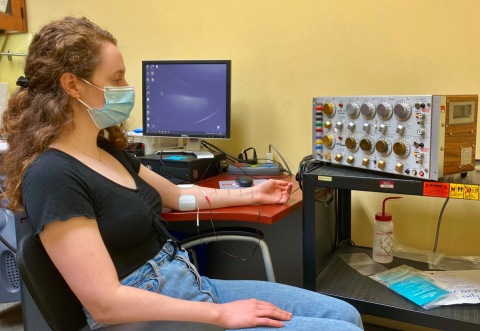The Power of Conviction
"The number of personalized drugs on the market has doubled in the past five years. Understanding how a patient's beliefs may affect personalized treatments could encourage researchers to better control for them when developing new drugs.""We wanted to see whether these treatments are more effective for something other than just their chemical components. Contextual factors [are important in determining a treatment's effectiveness]. This can be patient expectations. These can be the process of personalizing the treatment, the setting where people receive the treatment and what kind of communication they receive from the physician or from the clinician that they received the treatment from.""If it is confirmed in clinical settings then it could suggest that at least a part of the personalized treatment's effectiveness is due to the placebo effect. So, researchers need to control for it more when developing personalized drugs, and clinicians could use it when delivering these drugs.""Participants who scored high on wanting to feel unique benefited the most from the machine when it was presented to them as personalized to their genetics."Dasha Sandra, master of science graduate, neuroscience program, McGill University"Currently, clinicians delivering personalized treatments know little about how psychological factors can improve their patients' outcomes.""Our findings, if confirmed in clinical studies, could help clinicians harness these factors to deliver personalized treatments more effectively."Mathieu Roy, associate professor of psychology, McGill University
 |
Researchers in the department of psychology at McGill University undertook a study with the enrolment of 102 adult subjects, finding early evidence that convincing someone verbally that a health remedy has been personalized just for them, can vastly increase effectiveness. The study subjects received forearm heat stimuli causing pain after which they were given an electric current which it was explained would reduce the pain. The treatment in actual fact was a sham, but those in the study informed the treatment was personalized, found it to be more effective than the rest of the subjects who received the placebo.
The results concluded that patients informed their treatments were personalized reported an 11 percent reduction in pain intensity, with the pain that was experienced being 15 percent less unpleasant in comparison to a three percent reduction on both counts for those who were told the treatment was generally effective. Personalized medicine makes use of genetic information and physiology in tailoring treatments to an individual patient, with the intention of delivering more effective results. Its use is gaining in popularity.
For the study, participants underwent a process mimicking that of patients who actually are the recipients of personalized treatments in reality. The participants were given a sham genetic test, then informed it would be analyzed by doctors. A fake psychological test was also administered. The study conductors made a pretense of adjusting a machine to reflect the personalization of what they claimed was based on the results of the sham tests.
What the placebo effect represents is any effect from a treatment unrelated to its pharmaceutical compounds. "The effect of the treatment (is) based on the patient psychology rather than based on the context of the pill", explained Ms. Sandra. And while scientists are uncertain precisely how the placebo effect works, it is recognized for its potentially powerful effects. There are theories justifying the effectiveness of the placebo effect; that less anxiety may result, or that it could lead to a change in the state of a patient's brain, or the release of endorphins in the brain may occur when patients believe in the treatment's effectiveness.
A personality test was required of the study participants which led the researchers to the conclusion that people who value feeling unique could be more greatly influenced by the placebo effect. It was from among these study subjects that reports of greater pain relief emanated than from the sham personalized treatment.
 |
| McGill University |
Labels: Health Care, Personalized health-care treatment, Placebo Effect, Study

0 Comments:
Post a Comment
<< Home